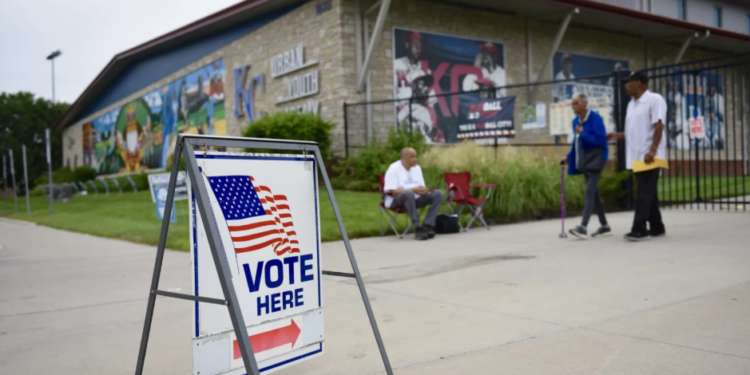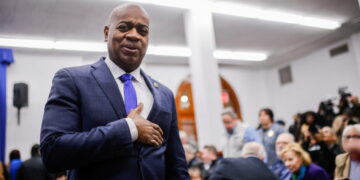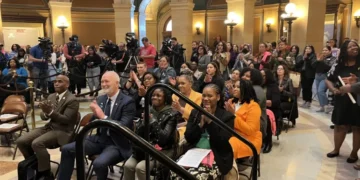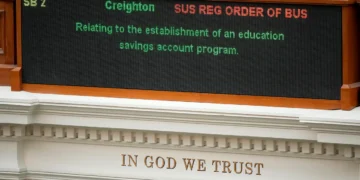Oct 30, 2024 Story by: Editor
A recent report on disenfranchisement reveals that 1.7% of adult residents in Missouri are unable to vote due to felony convictions, with this rate being more than double for Black Missourians.
The Sentencing Project’s Locked Out 2024 report assesses disenfranchisement rates nationwide, placing Missouri among the states with the highest rates. While Massachusetts has a low rate of 0.14%, Tennessee holds the highest at 7.8%, with the national average at 1.7%.
In Missouri, individuals who are incarcerated or under court supervision—whether on probation or parole—are barred from voting. The report indicates that 79,479 eligible voters in Missouri cannot participate in elections because of felony convictions, including over 53,000 individuals currently on felony probation or parole.
Experts warn that the high number of people on felony supervision has serious implications for communities of color, particularly concerning their political representation.
“Sometimes people think about disenfranchisement as something that is not consequential, or maybe not as consequential as some other barriers that people who are formerly criminalized face like housing or employment, which are obviously really critical things,” said Marisa Omori, an associate professor of criminology and criminal justice at the University of Missouri-St. Louis. “But I also think it’s not without consequence, right? These things have very real consequences for elections.”
Although the proportion of Black individuals incarcerated in Missouri is relatively small compared to the overall disenfranchised population, their incarceration rate is disproportionately high relative to the size of the Black population in the state. Omori attributes this racial inequality to historical segregation and over-policing, which have resulted in a significant number of individuals losing their voting rights.
The report notes that 3.76% of Black Missourians of voting age are disenfranchised, down from 5.15% in 2020. Currently, nearly 19,000 Black adult Missourians are incarcerated with felony convictions, a decline from over 26,000 four years ago. The Latino disenfranchisement rate in Missouri stands at 1.29%, which is below the national average of 1.55%.
In 2020, the Sentencing Project estimated that over 95,000 people in Missouri were disenfranchised; this number has since decreased by more than 20%. However, researchers caution against celebrating this reduction in incarceration rates, as the number of individuals under supervision remains significant.
While states may be incarcerating fewer people, there are still many on probation or parole, and this contrast persists regardless of trends, according to Omori.
“The big concern … is just the racial inequality piece of it, regardless of the scale, and given the decreases in mass incarceration that we’ve had, we still incarcerate people at a really high rate — the highest of westernized developed countries in the world,” she noted. “Regardless of that scale, which is huge, it’s still disproportionately impacting Black and brown people … that’s still the fundamental issue.”
In recent years, governors in states such as New York, New Mexico, and Minnesota have enacted legislation to automatically restore voting rights to individuals with felony convictions upon their release from prison. In Missouri, lawmakers have introduced bills aimed at restoring voting rights for those on probation or parole. Last session, Sen. Curtis Trent, R-Battlefield, sponsored SB 1199; Rep. Melanie Stinnett, R-Springfield, proposed HB 1927; and Rep. Kimberly-Ann Collins, D-St. Louis, introduced HB 2201 to restore voting rights, but all initiatives have since stalled.
Omori stated that there is considerable legislative resistance to these proposals amid increased awareness of voting barriers. She observed, “It ends up raising attention on both sides of the issue; you can have some folks who are trying to pass these rollbacks of voting restrictions to lower the disenfranchisement rates of people. At the same time, you have other strategies or other people who are trying to work on voter ID laws or other kinds of political gerrymandering.” Source: KCUR

















